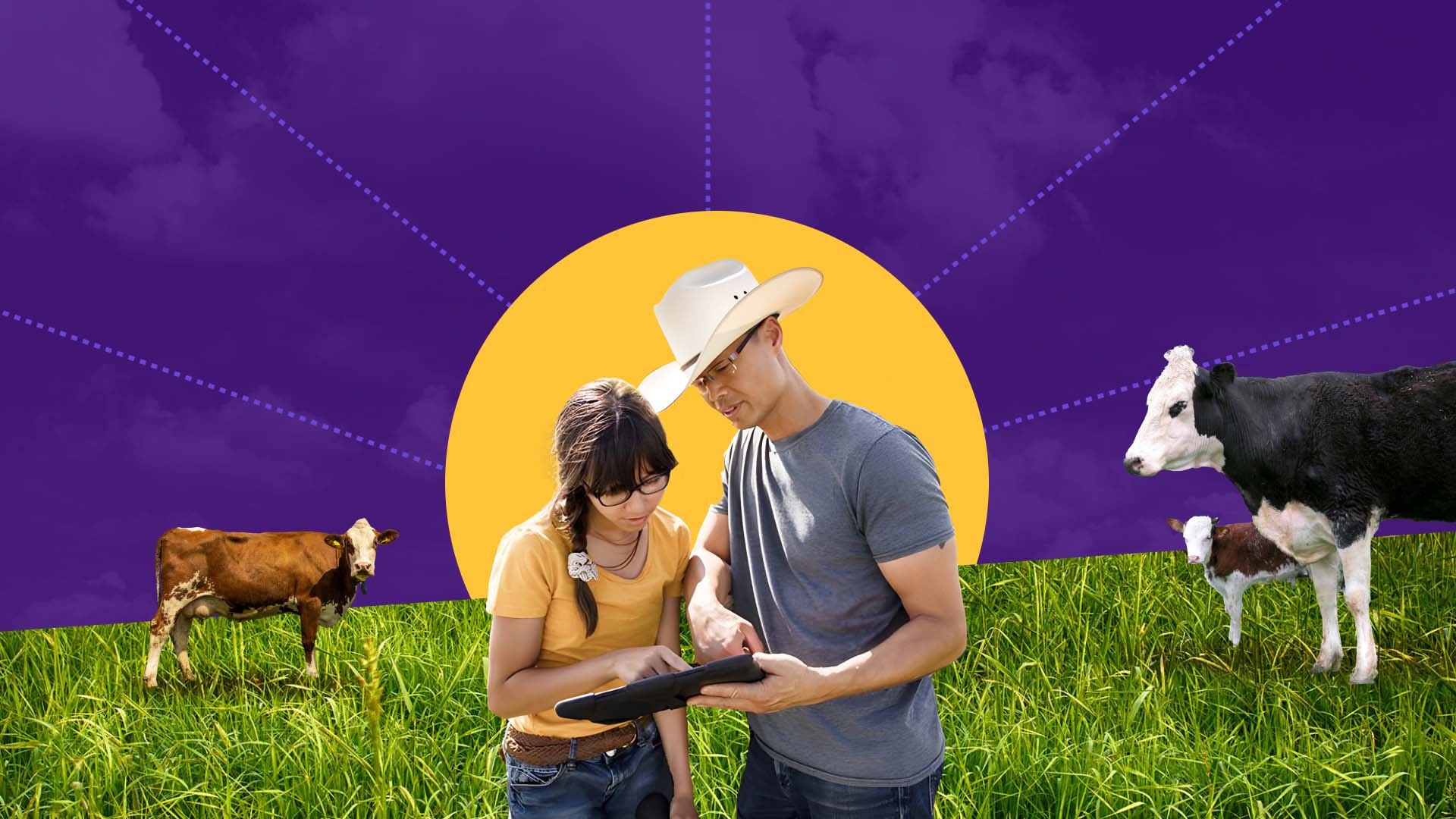
The Challenge
Overview
Addressing methane emissions from cattle is complex. About 86% of methane emissions in agriculture are released through a biological process called enteric fermentation that takes place in the gut of cattle and other ruminant animals. Therefore, emerging solutions need to be backed by strong scientific evidence to ensure the welfare of the animal and the safety of the product that will be ultimately sold to consumers while accounting for the variability in farm operations. Moreover, there are only a limited number of scientifically validated and economically viable solutions ready for commercialization and/or adoption. There is an urgent need for innovations and breakthroughs.
Challenge statement
Agriculture and Agri-Food Canada (AAFC) is looking to advance innovative, scalable and economically viable practices, processes, and technologies that contribute to the net reduction of enteric methane emissions from the cattle sector, specifically cow-calf operations, feedlot, and dairy.
What are we looking for?
AAFC is looking to invest in, and support, solutions that:
- Can reduce net enteric methane emissions – through measures such as average estimated reductions per head of cattle, annual reductions in Mt CO2 equivalents, or reduced methane intensity (depending on solution type).
- Are innovative, with strong potential for meaningful change – rethinking existing solutions and processes.
- Are ready to scale up – ready to test, measure, iterate and implement.
- Have strong potential for adoption – there is buy-in from the sector and the solution can integrate with existing processes.
- Can reduce upfront costs – taking a low-technology and economically viable approach.
What are some potential innovation areas?
A non-exhaustive list of some potential innovation areas are:
- Feed additives and improvements, and related technologies such as precision feeding, improved forage quality, novel feed additives.
- Pasture and grazing management practices that either improve an existing practice or introduce a novel approach.
- Improving production and feed efficiency by leveraging improved cattle management, animal health or breeding practices.
Who can apply?
From farmers to researchers to businesses and more, the Challenge is open to all Canadians looking to advance innovative, scalable, and economically viable practices, processes, and technologies that reduce enteric methane emissions.
In order to be eligible to receive prizes, innovators must establish a legal entity (such as a registered business, corporation or a not-for-profit organization) capable of entering into binding agreements in Canada.
International innovators are encouraged to apply but will be required to establish a Canadian legal entity in order to be eligible to receive funding. In addition, innovators will be required to test, pilot, demonstrate, and deploy their solution in Canada.
Underrepresented and marginalized groups in Canadian agriculture — including women, youth, persons with disabilities, racialized persons, visible minorities, 2SLGBTQI+ communities, and official language minority communities are encouraged to apply.
Please be sure to review the Applicant Guide in detail before preparing and submitting your concept application.
Key dates
Stage 1A – Call for Applications
- Online application period opens on November 14, 2023 at 9:00 AM PT
- Online applications will close on February 7, 2024 at 11:59 PM PT
- Stage 1A results: Summer 2024
Stage 1B – Prototype development
- Technical review ends: Early 2025
- Stage 1B results: Spring 2025
Stage 2 – Testing and measurement
- Application deadline for semi-finalists: Early 2026
- Stage 2 results: Spring 2026
Stage 3 – Grow and scale
- Application deadline for finalists: Fall 2027
- Grand Prize winners announced: Spring 2028
Challenge details
Who can apply
- Businesses or other for-profit organizations incorporated in Canada;
- Not-for-profit organizations registered in Canada;
- Producers, producer organizations and associations within Canada;
- Indigenous (First Nations, Métis, Inuit) individuals, organizations or groups of individuals located in Canada;
- Post-secondary/academic institutions located in Canada;
- Individuals or groups of individuals based in Canada;
- Collaborations between one or more of the above categories of applicants and international parties.
Prizes
- $250,000
Up to 20 semi-finalists will be selected to receive up to $250,000 each to support the development of a technology, practice or process to reduce enteric methane emissions. - $500,000
Up to 10 finalists with the top solutions will be selected to receive up to $500,000 each to test their solution in an operational environment in partnership with the solution’s end users. - $1,000,000
Up to 2 prizes of up to $1 million will be given to the innovators who best demonstrate the widespread applicability of their solutions.
Stage 1A key dates
- November 14, 2023
Call for applications - February 7, 2024
Application deadline - Summer 2024
Announcement of 20 semi-finalists
Important resources
AAFC is looking to advance innovative, scalable and economically viable practices, processes, and technologies that contribute to the net reduction of enteric methane emissions from the cattle sector.